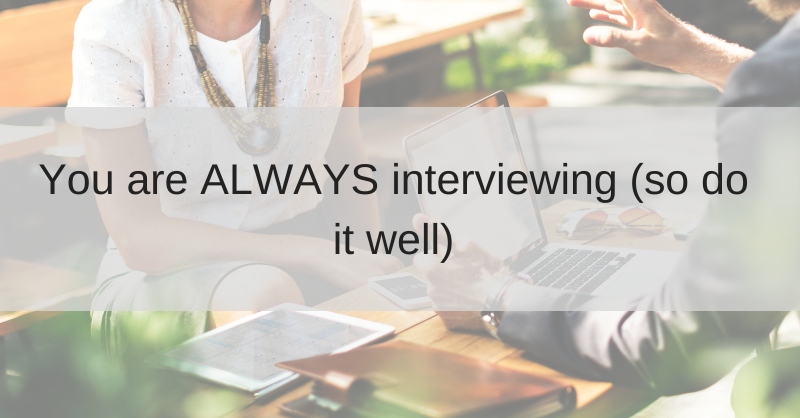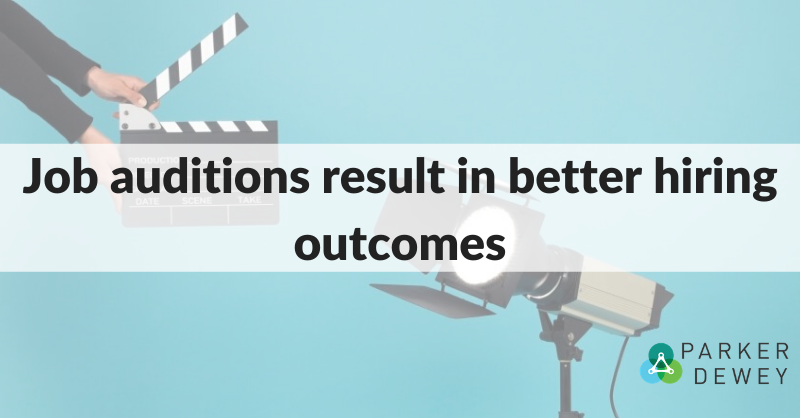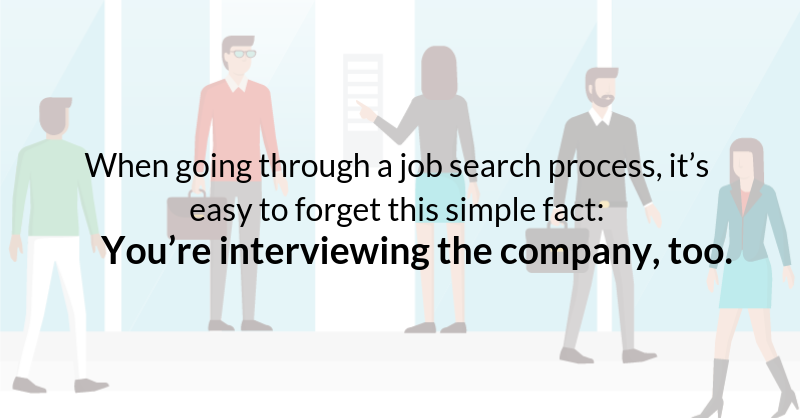
You are ALWAYS interviewing (so do it well)
You landed a formal job interview - now what? Interviews can seem stressful and intimidating, but knowing how to conduct yourself in a professional interview is essential to any Career Launcher. The more prepared you are before the interview, the less you have to worry about during the interview. I usually get super nervous before any type of interview, so here is some advice on things that have helped me feel less anxious and more at ease before meeting with a potential employer:
Know what type of interview you’re going into:
There are several different interviews that potential employers may conduct such as a phone interview, video interview, one on one interview, panel interview, or group interview. For a phone or video interview, make sure you are in a quiet area with good service so you can have a clear conversation with no interruptions.
For a one on one interview, make sure to present yourself in a professional manner and make eye contact with your interviewer. During a panel interview, make sure you try to connect with each person interviewing you, even if only one person is asking you questions. For group interviews, try to differentiate yourself and make your responses stand out, even if each candidate is being asked the same questions.
Dress the part
You always want to look put together and professional for any type of interview, no matter what the industry is. Some industries call for more formal attire while some allow more casual attire, so do some research in your industry to see what the usual dress code is. If you are still unsure of what to wear, don’t be afraid to ask the person who set up the interview with you what the company dress code is.
Practice, practice, practice
The more you practice, the more prepared you will be. Look up some common interview questions online and prepare your answers. Ask a friend or family member to help out by conducting a mock job interview and giving you feedback on your answers. You can even try recording yourself on camera and watching the video to see what you did well and what you can improve on.
Do your research
Make sure you have a general idea of what the company does and what position you are interviewing for. You can read their website or social media pages to learn about their services, employees, clients, and any other information you can find. With this information you can find out what interests you about the company and make a strong case for why you think you would be a good fit for this position.
Make a lasting (positive) impression
While first impressions are very important, you want to make a lasting impression on your interviewer and be someone they will remember. Always be yourself- answer questions honestly, not how you think the interviewer wants you to answer. Even if you don’t get hired for the position you interviewed for, they might remember you in the future next time a position becomes available. Be sure to send individual thank you cards to your interviewer(s) afterwards to thank them for their time and show your excitement for the possibility of working for their company. A thank you e-mail will suffice, but a thank you card will make you stand out more!
The job interview does not start or end at the interview
Most importantly, remember that you are ALWAYS interviewing. During campus presentations, interactions with alumni, and networking events, people are looking for signs that you may be a good fit for their organization, or one that they know. Even when emailing or talking with friends or professors, make. sure to present yourself in a way that they would be comfortable recommending you for a job or making an introduction.
The same is true for campus events. When a company representative is presenting, don't play on your phone, wear sweats, or seem disinterested. As obvious as this seems, I have been in many presentations where I have seen all of these things (sometimes by the same person!).
Finally, for summer interns, consultants, or freelancers, your whole experience is an interview. Given that less only 15% of of graduates are considered job ready, companies are using this time to determine if you are in that 15%, and if you have the right fit. You got in the door, make the most of it!




